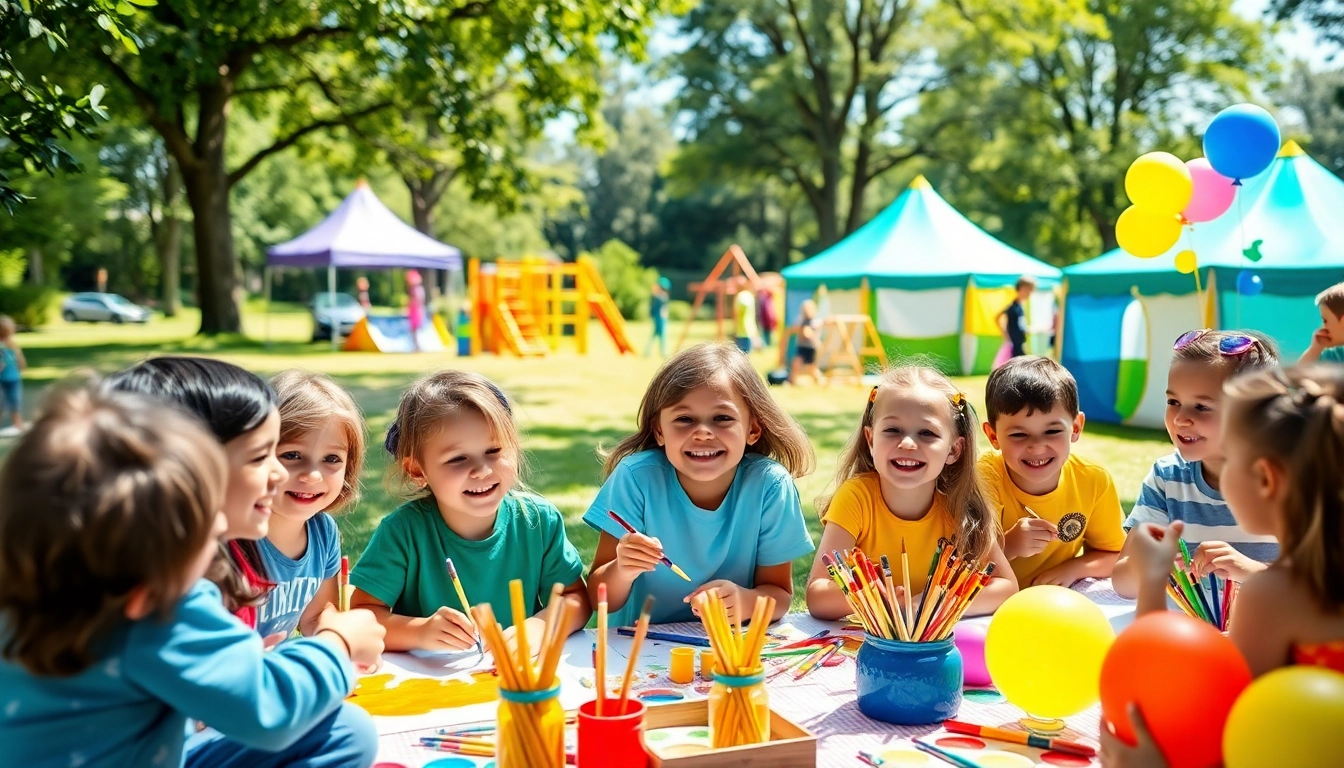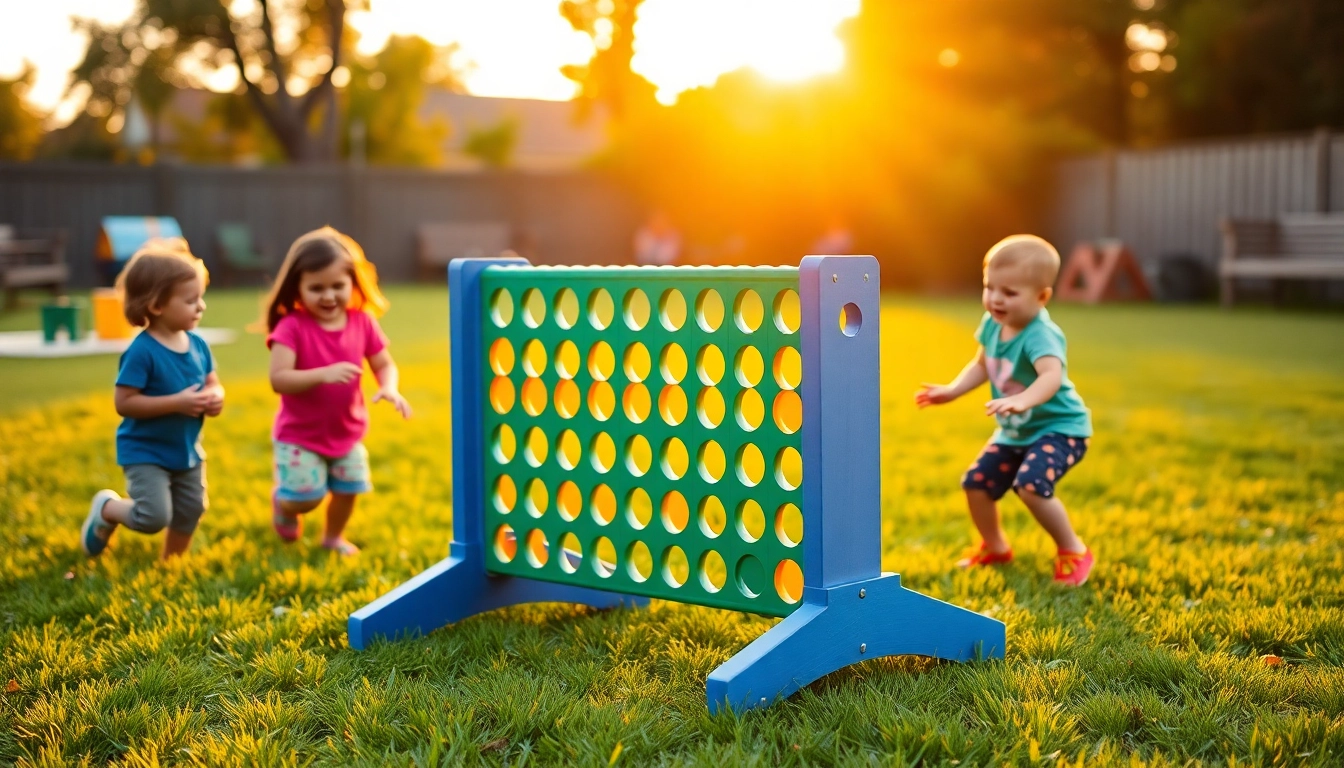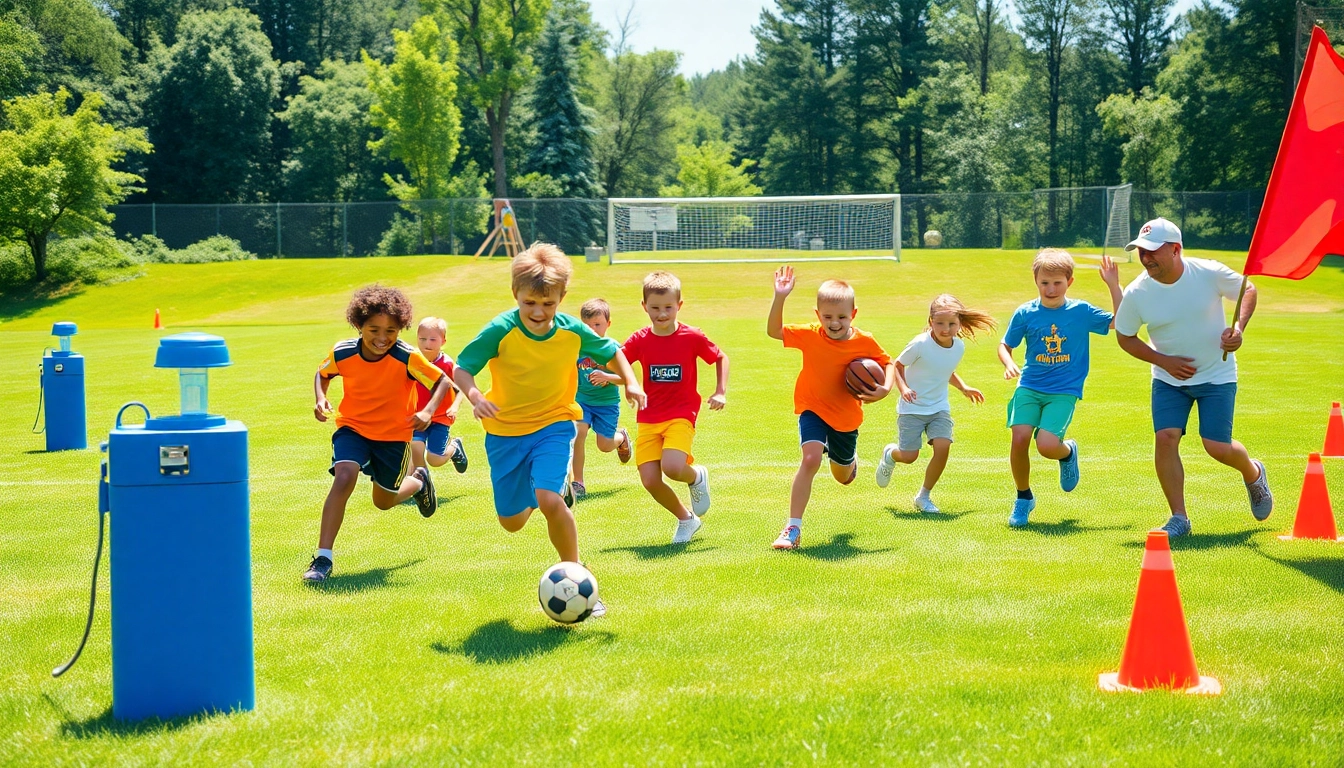Introduction to Holiday Camps
As children grow, the need for engaging activities outside of structured academic environments becomes increasingly important. One fantastic option that parents might consider for enrichment during school breaks is holiday camps. These camps not only provide a fun escape from the daily routine but also serve to enrich skills, nurture creativity, and build social connections among peers. This article delves into what holiday camps are, their benefits, the various types available, and how parents can make informed choices when selecting a program that best suits their child’s interests and needs.
What Are Holiday Camps?
Holiday camps, sometimes referred to as break camps, are structured programs designed for children during school holidays. They typically offer a variety of activities that can range from sports and arts to educational workshops. Apart from being a solution for parents seeking childcare during school breaks, holiday camps also act as a platform for children to explore new interests, develop skills, and make new friends. Most programs are meticulously planned to ensure safety, enjoyment, and educational values, appealing to a wide range of age groups from preschool to teenagers.
Benefits of Attending Holiday Camps
Attending holiday camps presents numerous benefits that extend beyond merely having fun. Here are some key advantages:
- Social Skills Development: Children have the opportunity to meet peers, fostering friendships that can last well beyond the camp period. This interaction helps improve their communication and teamwork skills.
- Skill Acquisition: Many camps focus on specific themes such as science, technology, engineering, arts, and mathematics (STEAM). This exposure gently nudges children toward new interests while allowing them to acquire valuable skills.
- Physical Activity: With structured activities often involving physical challenges and sports, children can enhance their fitness levels in a fun environment.
- Independence: Participating in holiday camps helps children become more self-reliant, teaching them to navigate various tasks independently—such as managing their belongings or interacting with adults.
- Safe Environment: Most holiday camps are supervised by trained professionals who prioritize child safety, ensuring a secure setting for exploration and play.
Types of Holiday Camps Available
Holiday camps come in various formats, catering to diverse interests and age groups. Understanding the different types can assist parents in making informed decisions. Here are some common categories:
- Day Camps: These camps typically operate during daytime hours and allow children to return home at the end of each day. They often feature a mix of activities tailored to children’s interests.
- Overnight Camps: For parents seeking more immersive experiences, overnight camps provide extended stays away from home, often over several days or weeks. They focus on community building and independence.
- Themed Camps: Camps focused on specific themes, such as sports, arts, science, or adventure, allow children to dive deeper into their interests, often providing specialized instruction and resources.
- Academic Camps: These focus on enhancing educational skills and knowledge, offering workshops and activities that complement school learning, including tutoring and test preparation.
- Adventure Camps: Often located in natural settings, these camps emphasize outdoor activities like hiking, rock climbing, and canoeing, encouraging children to connect with nature.
Choosing the Right Holiday Camps
Selecting the right holiday camp can be a daunting task, given the myriad of options available. It requires consideration of various factors to ensure the camp aligns with a child’s personality, interests, and needs.
Factors to Consider When Selecting Holiday Camps
When evaluating potential holiday camps, parents should take into account several key factors:
- Reputation: Researching reviews and testimonials can provide insights into the camp’s reputation and the experiences of previous attendees.
- Accreditation: Verify if the camp is accredited by a recognized authority, which often indicates adherence to safety and educational standards.
- Staff Qualifications: Understand the qualifications and training of camp staff. Qualified personnel enhance both the learning experience and the safety of attendees.
- Cost: Assess the financial implications, including tuition and any additional fees. Some camps offer scholarships or financial aid, which can alleviate budgeting concerns.
Age Appropriateness for Holiday Camps
Age-appropriate camps ensure that the activities align with the developmental stages of children. Younger children may benefit more from camps with hands-on, sensory experiences, while teenagers might seek more challenging programs that delve deeply into their interests.
Location and Accessibility of Holiday Camps
Evaluating the proximity of the camp to home or school is essential. Ease of accessibility impacts daily logistics and should be a significant factor in the decision-making process. Additionally, consider transportation options, especially for camps operating in remote locations.
Activities Offered in Holiday Camps
The heart of any holiday camp lies in the activities offered. The variety not only keeps children engaged but also aids in their personal development. Here’s a closer look at some common activity categories.
Creative Arts and Crafts at Holiday Camps
Creative arts and crafts are integral to many holiday camps. These activities stimulate children’s imagination and provide opportunities for self-expression. Camps may offer painting, pottery, sewing, and various craft projects that encourage creativity and skill-building.
Physical Activities and Sports in Holiday Camps
Physical engagement is crucial for healthy development. Most holiday camps integrate sports and physical activities into their curriculum, teaching children the importance of teamwork, discipline, and perseverance. From traditional sports like soccer and basketball to dance and yoga, there are options that cater to every interest.
Educational Workshops and Learning Experiences
While holiday camps are fun, they also provide ample learning opportunities. Many camps incorporate educational workshops such as science experiments, coding, language immersion, or environmental education. These experiences prepare children for future academic pursuits while keeping the learning process enjoyable.
How to Prepare for Holiday Camps
Essential Packing List for Holiday Camps
Packing the right items can make all the difference. Here’s a basic list of essentials for day camps:
- Comfortable clothing appropriate for activities
- Weather-appropriate gear such as jackets, hats, or raincoats
- Water bottles to stay hydrated
- Healthy snacks or packed lunches as per camp guidelines
- Any personal items like a favorite book or blanket for comfort
What to Expect on the First Day of Holiday Camps
The first day can be exciting yet overwhelming for children. Expect orientation sessions led by camp leaders, where rules, schedules, and activities will be introduced. It’s normal for children to exhibit a range of emotions; reassurance and enthusiasm from parents can help ease any anxieties.
Communicating with Camp Leaders Before Holiday Camps
Effective communication with camp leaders is crucial. Parents should reach out prior to camp enrollment, discussing any specific needs or concerns regarding their child’s participation. Many camps are open to personalized accommodations to ensure a positive experience for all attendees.
Making the Most of Holiday Camps Experiences
To fully capitalize on the enriching experience of holiday camps, both children and parents need to adopt a proactive approach.
Building Friendships in Holiday Camps
Encouraging children to approach new friendships can positively impact their confidence levels. Parents can help by discussing the importance of socializing and sharing experiences that may make children more comfortable in initiating conversations with peers.
Collecting Memories: Tips for Parents
Documenting experiences can be invaluable. Here are some tips for parents:
- Take photos during drop-off and pick-up to commemorate the first days.
- Create a scrapbook together using art and crafts completed at camp.
- Encourage children to journal about their experiences, which can serve as a wonderful memory to reflect on in later years.
Feedback and Improvement After Holiday Camps
After the camp period concludes, engaging your child in a conversation about their camp experience is vital. Discuss what they enjoyed, any challenges they faced, and what they learned. This dialogue not only provides closure but presents an opportunity for growth and feedback that can be beneficial for future camp decisions.







Leave a Reply